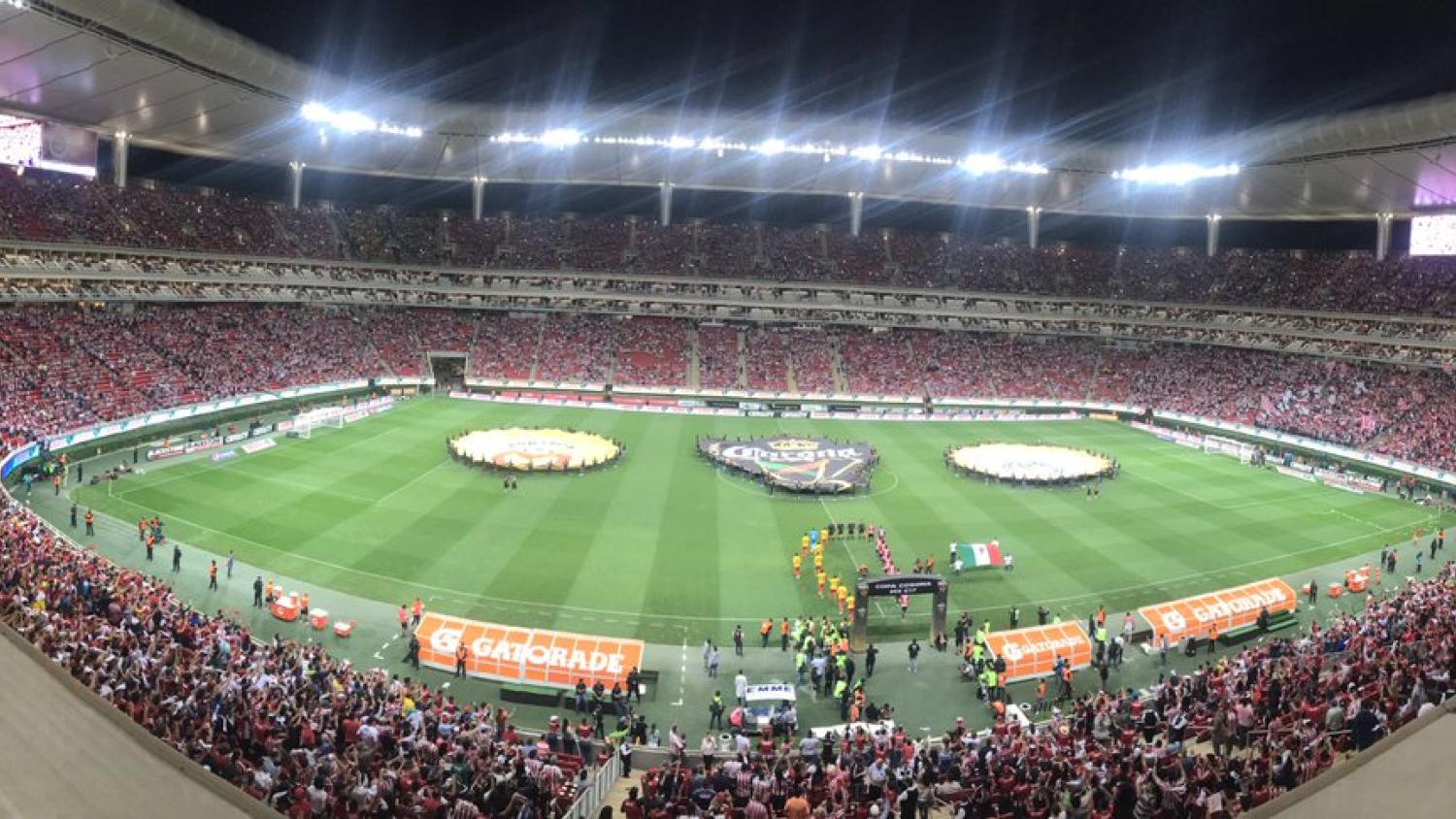In anticipation of Sunday night’s Liga MX final second leg at Estadio Chivas, we spoke with Jose Maria Aldrete Gonzalez, Facility and Turf Manager for the building and a member of the Sports Turf Managers Association.
Originally employed as an architect during the construction of the stadium, which opened in 2010, Aldrete has continued in his new role since that time, including overseeing the transition from an artificial playing surface to natural grass at the behest of Johan Cruyff in 2012.
Aldrete covered a range of topics in our discussion, from the daily tasks of his job to what we can expect to see tonight within the stadium. Here's a collection of quotes to give you a better understanding of what goes on behind the scenes and how nights like this come together.
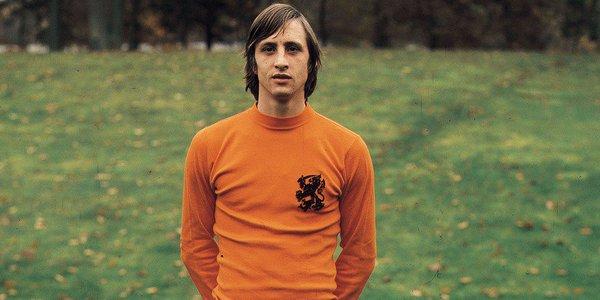
Johan Cruyff was a technical advisor at Chivas for nine months in 2012.
"We started with an artificial turf, but that was removed at the time when Johan Cruyff came to Chivas because he said actual soccer should be played on actual grass. In 2012, we switched from artificial to natural turf and I’ve been taking care of the natural turf since then.
"He didn’t talk to me directly. He spoke to the guys on the team and said we need to do this and they agreed, so we went from artificial to natural turf."
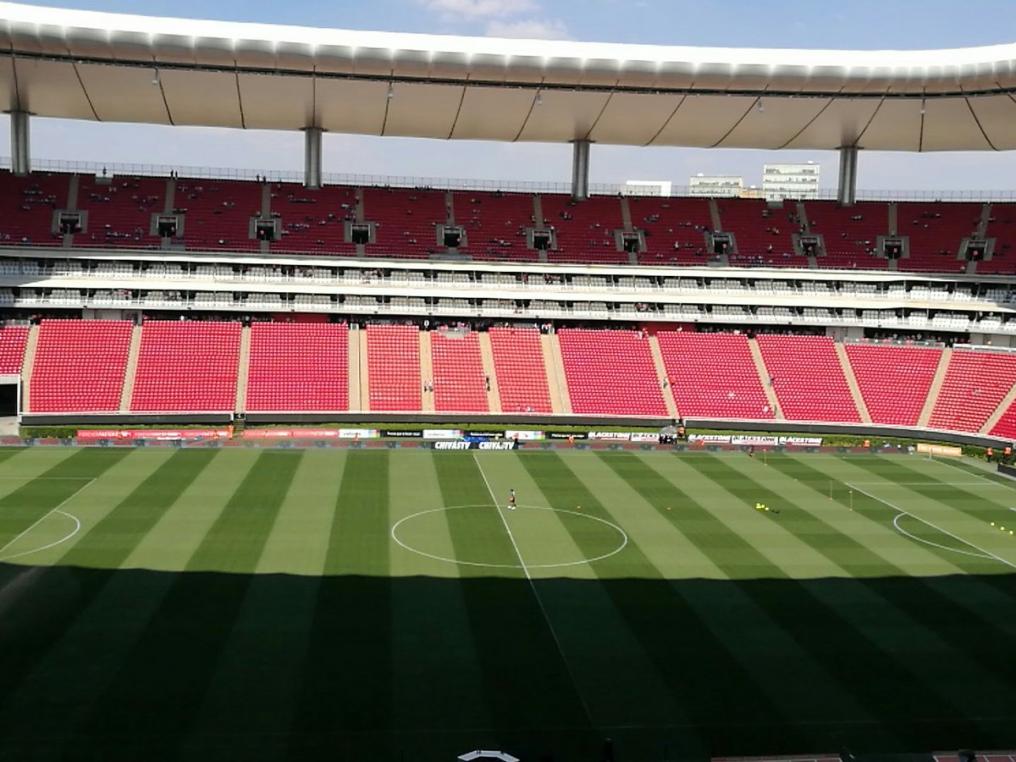
There simply isn't enough hours of natural sunlight for the pitch at Estadio Chivas.
"The architecture of the building has an impact on the grass like any other modern stadium. The thing is, when you have a structure like this, you don’t get as much sunlight as you need. You need somewhere between 8-10 hours of sunlight so that the grass can develop and photosynthesize correctly and have a healthy and natural growth.
"We don’t get that. Right now, we only get 5.5 hours of sunlight everyday. Sometimes we have a tough time, especially during the winter, because we have one part of the field covered by sun and one by shade, and this period runs from September through March."
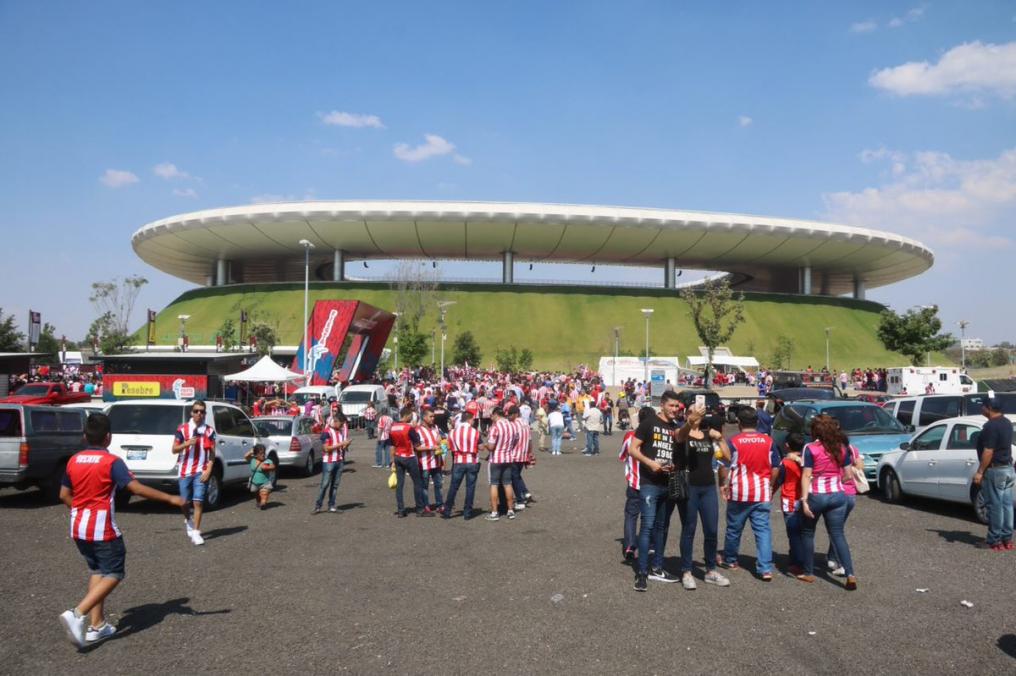
The volcano-like appearance of Estadio Chivas plays a role in maintaining the pitch.
"The actual grass cover on the exterior of the building is no problem for us, the actual problem is the height of the building that shades the grass and makes it harder to get sunlight. The first big decision we made under these conditions was our choice to cover the field with tall fescue, which is a species that tolerates growing under the shade.
"It has a very good response to very low sunlight, so it grows very well. It doesn’t grow like it would outside but still you have a better growing action than other traditional grasses. I have a nursery outside with the same kind of grass and it’s amazing. It grows beautifully, but inside it’s hard.
"The lighting is important too — we have very custom and very economical artificial lights which help a little, but its not a big system like other stadiums have. Hopefully sometime we’ll have some of those."
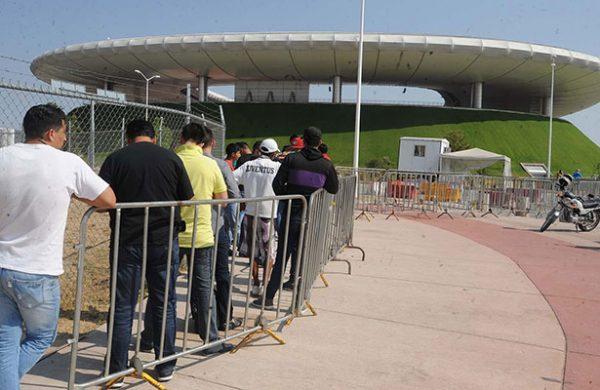
Not only does Aldrete manage the pitch, he also needs to ensure that things are running smoothly outside the stadium.
"The facility manager is the man in charge of the technical stuff of the building. I have a crew of about 40 people. The groundsmen are a team, and I’m the leader — I’m the manager and I make the decisions. I test everything that performs in the field and I have a crew that executes that.
"But for the rest of the building, I have a crew for the electricity, I have a crew for the sanitary stuff, I have a crew for everything that needs to be taken care of — water treatment, parking stuff, the streets, what we do is the technical operations which is a huge thing, we take care of everything.
"We need to make sure everything is working because if not, we are getting into trouble. We are in charge of making everything possible, from the center of the pitch to the outside in the streets."
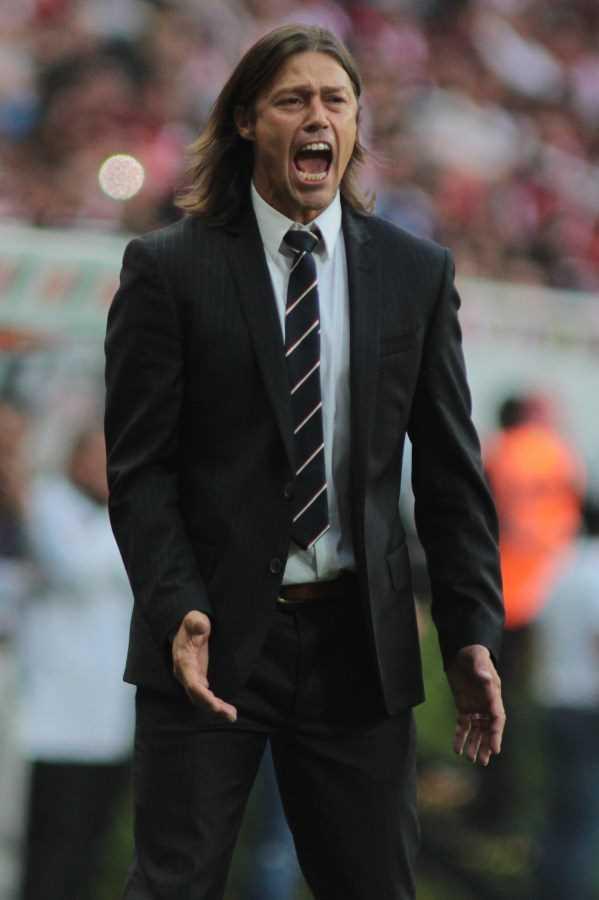
Chivas manager Matias Almeyda views every Chivas employee as part of the team.
"We’ve been monitoring the grass closely to take away some of the stress from the heat and the past game. The one thing that’s different is we’re paying closer attention to the details for this game; we’re being more careful about the things we do and just trying to be perfect so Matias [Almeyda] and his team can find a real carpet in the game, and they just have to worry about playing the game and not worry about the pitch.
"We have achieved a very good maintainers program, so that it makes it easier for us. We're just paying more attention to the details and we’re not overseeding. When we have a very tough season, we overseed every two weeks very lightly just to keep the covering and the density to keep going all season.
"But we don’t have much time for doing that now, so we’re not doing that this week, but the rest of the program is exactly the same, it’s been very successful for us. To be successful, we have to have a very good program which looks in advance of what’s coming and try to prevent the damage on the field or having it get worn out because of the heavy use we’re having and facing.
"This semester was especially busy because we had Copa MX running parallel with the league and we played the whole way through as champions — we played the final here so that was extra games."
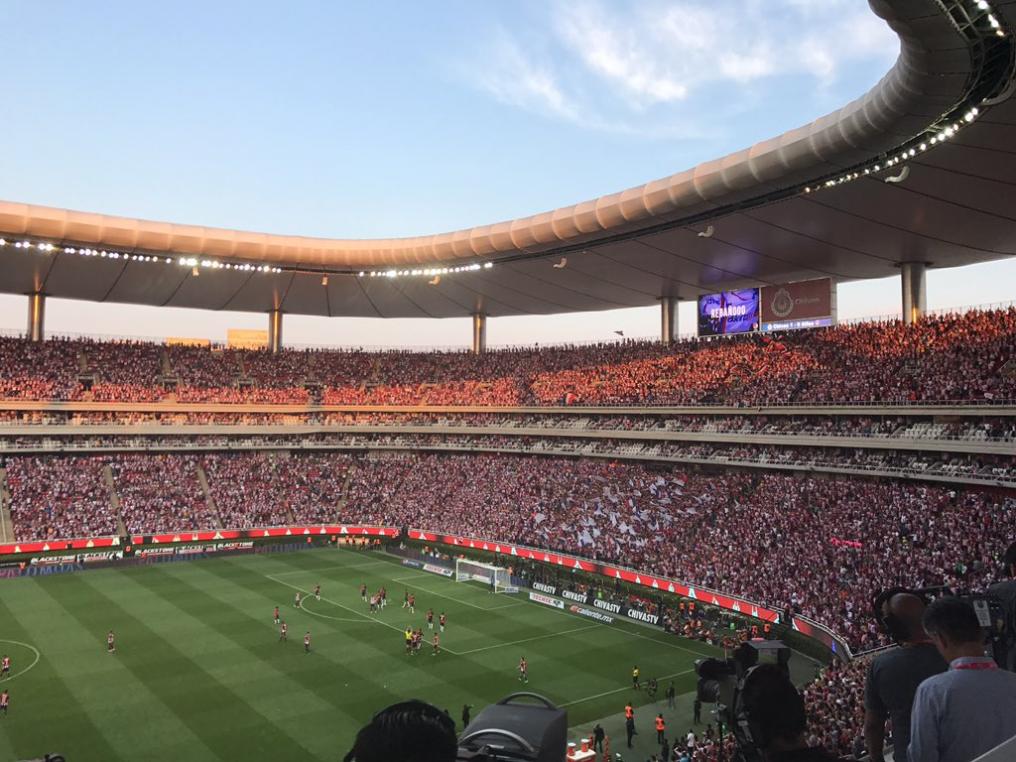
The grounds crew at Estadio Chivas is in communication with players and coaches regarding the state of the pitch.
"We communicate with them and we prepare documents. We prepare a brochure that informs them about the pitch — we tell them what the compaction is, how high the grass is, what the weather is and what it’ll be like throughout the game and what it’ll be like as compared to the last report.
"When they receive the report, they’ll see a couple pictures of what it looks like, they’ll see some data so they can have a parameter between one game and another and so when they receive the report they already know what to expect. They have a clear picture of what’s going to happen.
"We don’t talk to them directly, because they are very busy and they need to concentrate. But we inform them in the report so they know what’s going on in the field."
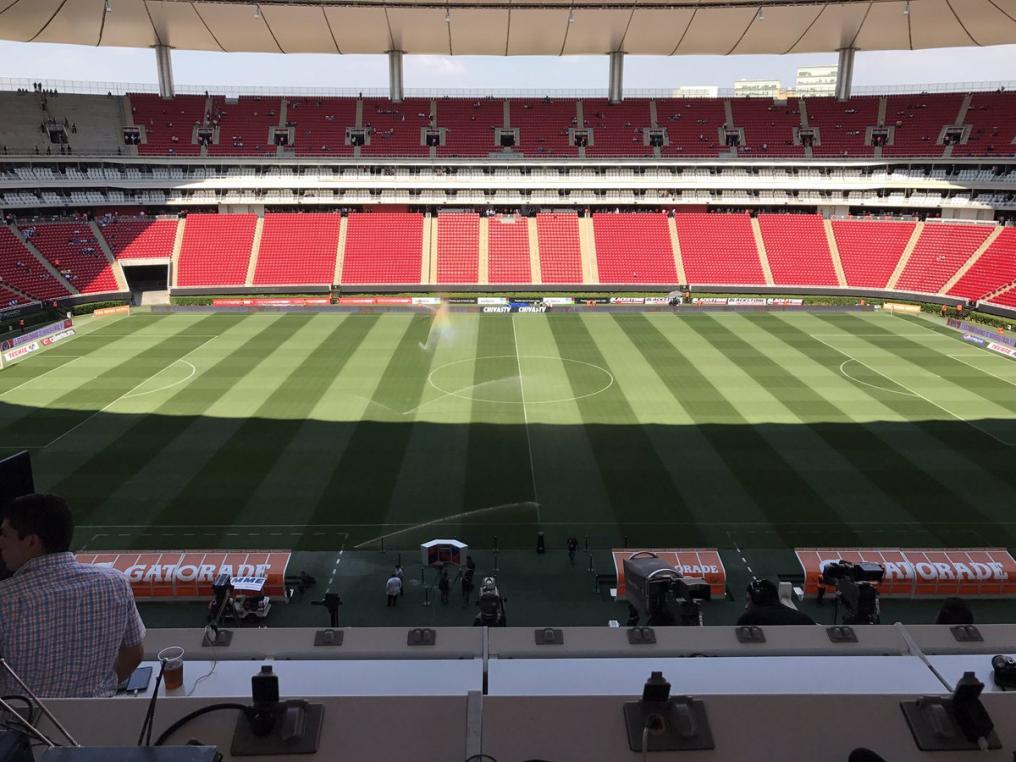
Liga MX rules stipulate that you can only water the pitch one hour before kick off.
"We’d like to do that [water the pitch directly before the game], but we are not allowed, at all, because the Mexican league only allows you to water the field one hour prior to the game. So when it’s very warm, like it is today, when you water the field one hour prior to the game you won’t find much water at the game.
"It’s a common practice in Europe and in the US and it helps a lot to make the ball move faster and it doesn’t get stuck in the grass — we’d like to do that and it would help Chivas since we’re a very fast, quick and dynamic team but the Mexican league won’t allow it. It would be wonderful…I hope they’ll let us do it later on, but we can get in trouble for running the sprinklers at halftime."
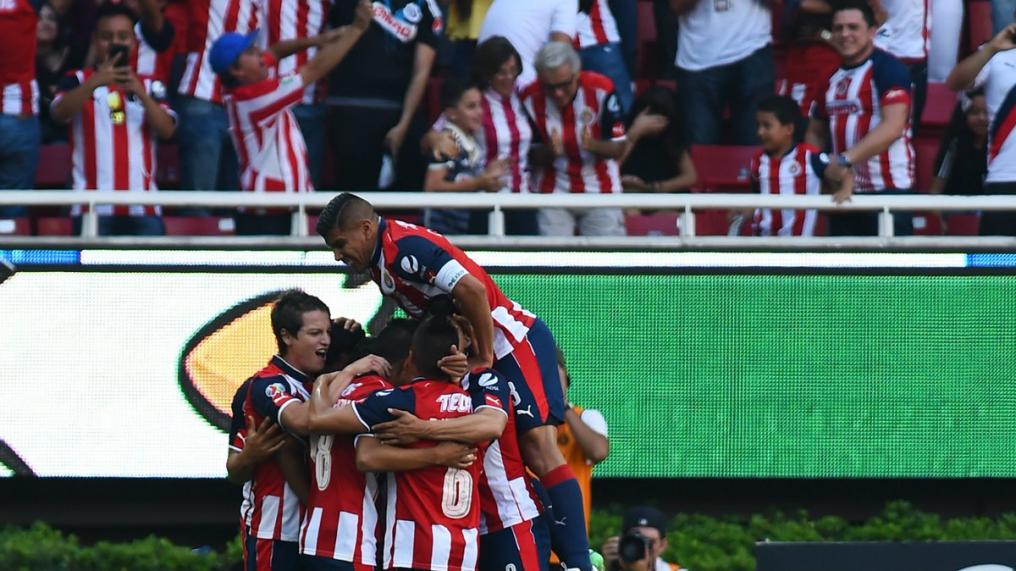
Aldrete's only concern is giving Chivas the perfect pitch on which to play.
"We know what’s coming and we’re ready for it. We’ve been working hard, and when you work hard you don’t have to be nervous. You just have to go there and execute your job, just like the players on the field. We’ve been working very good this semester and that’s why the field is looking great.
"The only worry is that we just need to let things happen — we need to give the best pitch possible to the team so they can perform perfectly."
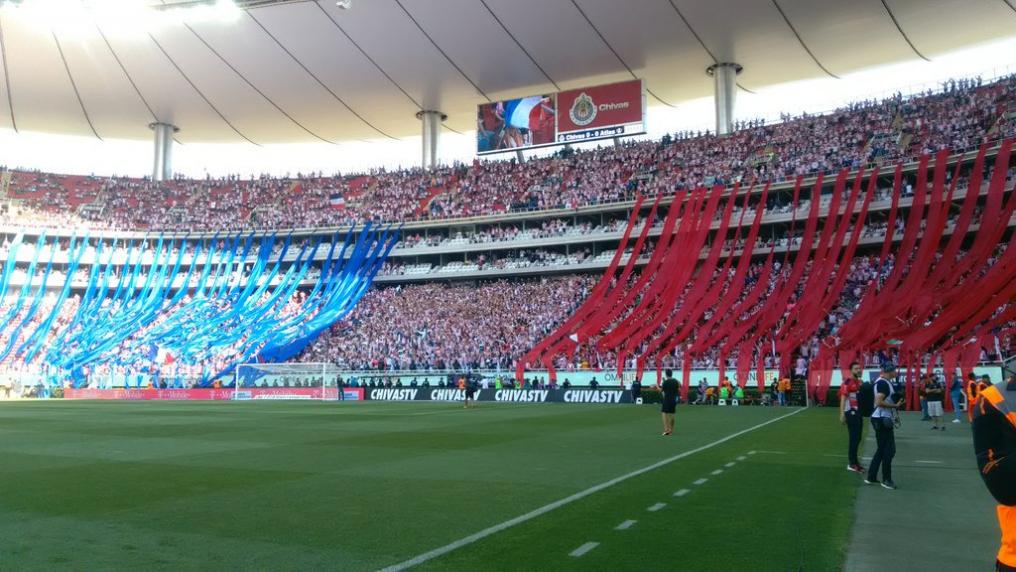
Estadio Chivas will be rocking tonight.
"Gignac, he’s an expert at doing that [the end of the first leg]. We got a little bit distracted in that, and that’s when he got us right there. Hopefully we can do it a little better on Sunday and be able to say we’re champions again.
"The first half, we were totally in control. We need to play from the back a little bit more and control the whole game. If we can do that on Sunday, we can expect something important. Let’s see what happens."
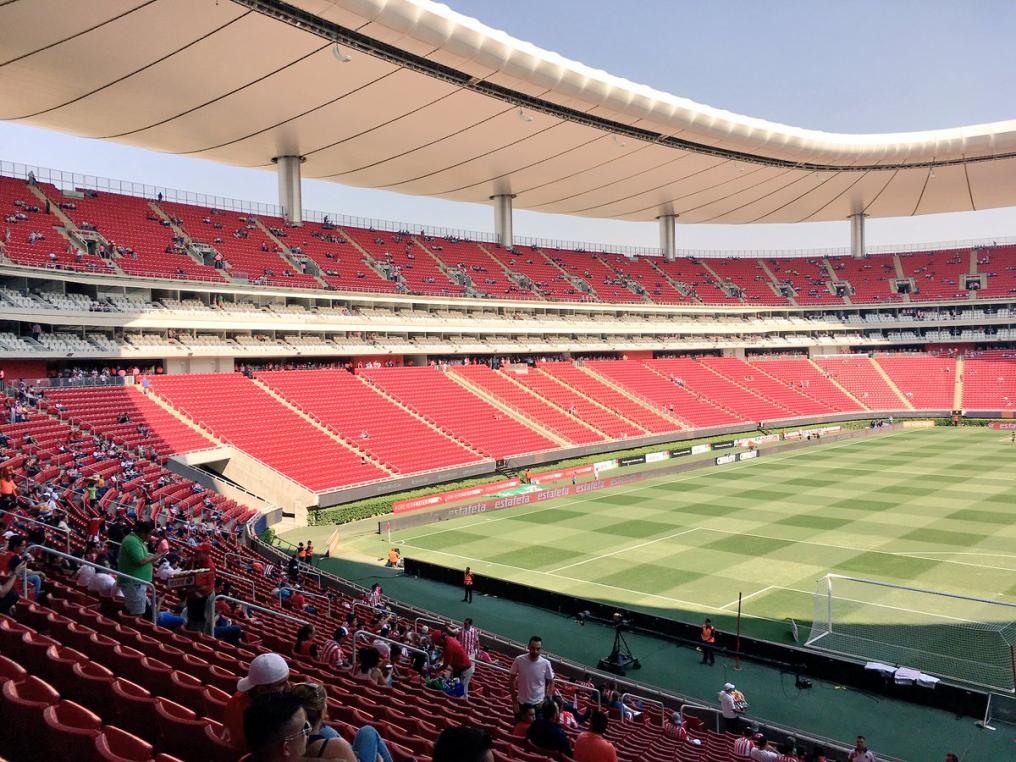
Temperatures are expected to be in the low 90s or high 80s throughout the match.
"Perfect. I just got the report and the pitch is in very good condition. It’s performing as well as the other games, and the weather will be hot. It’s going to be very hot and it’s going to be very good."

 Home
Home